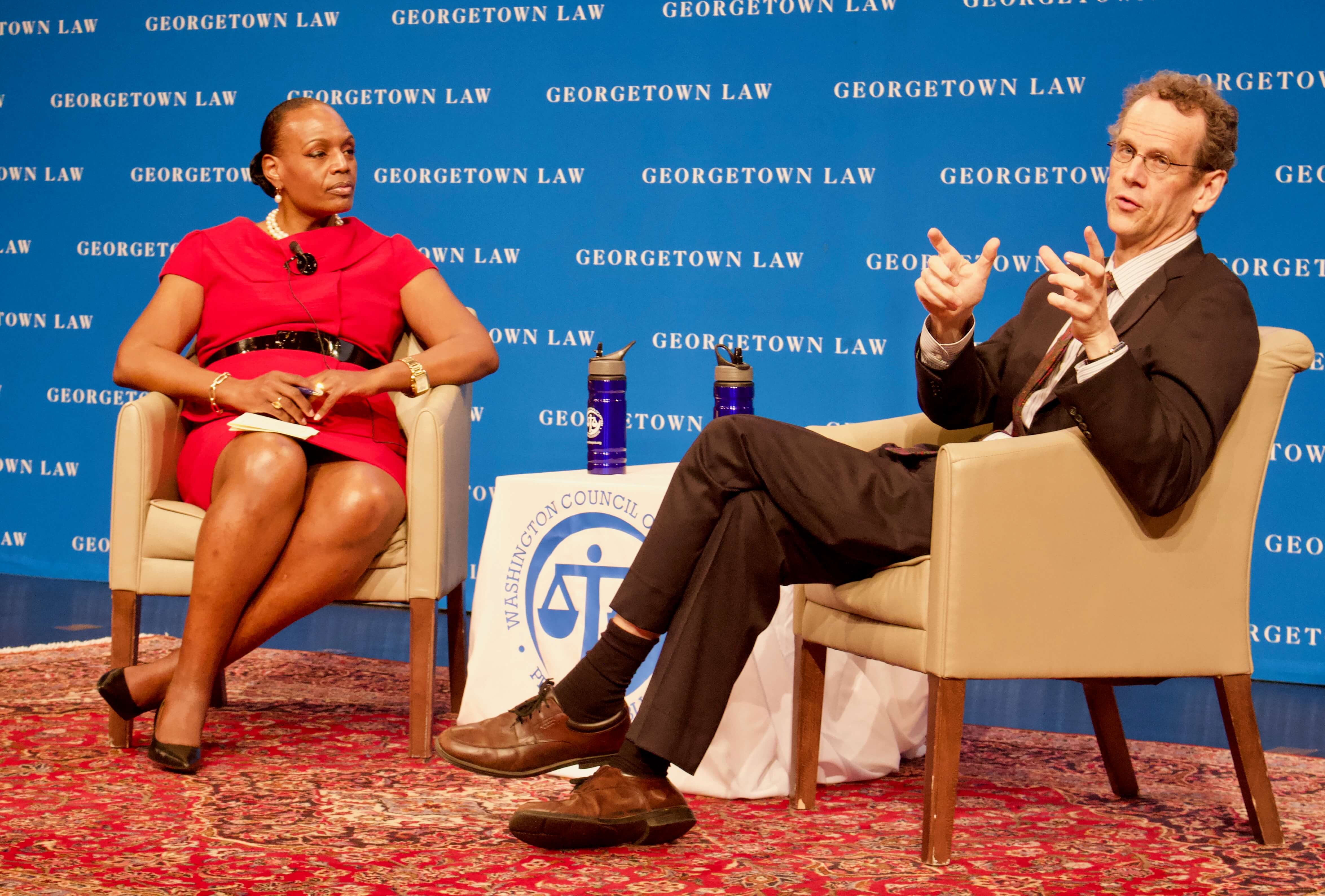
2018 Summer Forum: ACLU’s David Cole on Making Change In and Out of Court
By Faith Walker
Presenting keynote remarks at our June 2018 Summer Forum, ACLU National Legal Director David Cole spoke to 300 lawyers and law students about his own journey from aspiring jazz critic to leading a civil-liberties litigation program, the increasing importance of public-interest law, and the need to build a movement. David was interviewed by our board member Nicole Austin-Hillery, Executive Director for US Programs at Human Rights Watch.
David accepted the job as National Legal Director several months before the 2016 election. At the time, he expected a Clinton victory, a friendly civil-rights landscape, and the chance to lead long-term initiatives to expand civil rights and civil liberties. Instead, President Trump won the election and began what would become a modern civil-rights crisis. In a single night, David’s job had shifted: Gone was the chance to make sweeping progress; instead, he would need to fight to preserve existing precedents and combat new threats.
In light of these threats, David stressed the growing importance of public-interest law. The ACLU and other legal organizations strive to protect immigrants’ rights, women’s rights, LGBT rights, and more—so that everyone, including those who are poor and marginalized, are treated equally by the law.
David also discussed the need to build movements and nurture public opinion to pave the way for developing new legal precedents. As an example, he pointed to the success of the NRA. Twenty-five years ago, the conservative Chief Justice Warren Burger called a key NRA argument—that the Second Amendment provides an individual right to bear arms—”a fraud on the American people.” But things have changed, and in 2008 the Supreme Court held that the Second Amendment does confer such a right. The NRA got there by supporting policies in friendly states, building national popular support for gun rights, and bringing targeted cases designed to get their arguments in court—eventually winning big at the Supreme Court. Movements protecting human rights and civil liberties can do the same.
Some efforts, like Black Lives Matter, start as social movements and move into court. Others, like the campaign for marriage equality, started in court and expanded into other realms. David’s call to action was reflected in the panel discussions that followed; the panels offered both insights into the current system and tips for young lawyers and law students looking to use their legal careers to make a difference. By lending their voices to a movement or using their skills to build one from the ground up, public-interest lawyers can help make the changes that America desperately needs.
Faith Walker is an intern with Washington Council of Lawyers.






